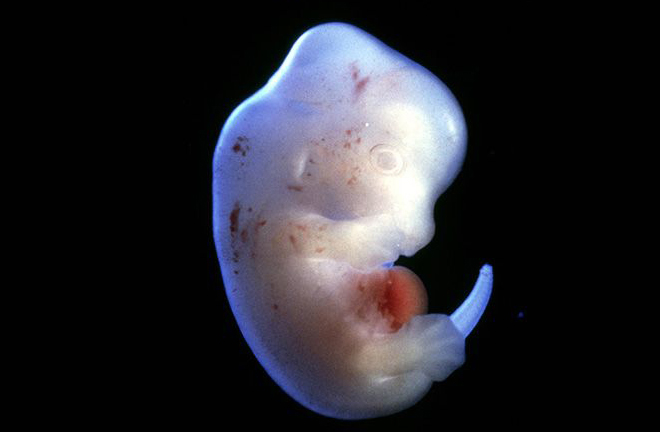China to set up committee for science and technology ethics

A Japanese stem-cell scientist plans to grow human cells in rat embryos and then transplant those embryos into surrogate animals, which has received support from the Japanese government. However, ethical hurdles need to be overcome. Photo: SCIENCE PICTURES LTD/SPL
An official document for a plan on establishing a national science and technology ethics committee was approved by the ninth meeting of China’s central committee for deepening overall reform in late July.
“The establishment of the national committee for science and technology ethics will improve institutional norms and governance mechanisms, and it will guide innovation-driven development,” said Duan Weiwen, a research fellow from the Institute of Philosophy at the Chinese Academy of Social Sciences. The application of science and technology research aims to enhance the public welfare and empower the country to develop and benefit humanity, but scientific and technological activities must abide by corresponding value and ethical norms.
The study of science and technology ethics in China is on the rise, and ethical regulations in related fields are constantly advancing.
China’s review of science and technology ethics began in the medical world, said Wang Mingxu, a professor from the School of Public Health at Xi’an Jiaotong University. Scholars proposed establishing a medical ethics committee as early as the end of the 1980s. However, due to incomplete legal support and a lack of national-level coordination, the medical ethics committee, with hospitals at all levels as its implementers, faced such problems as non-uniform standards and limited management rights.
With the all-around development of science and technology, ethical review in the medical field is far from meeting the real needs of science and technology ethics review. “Science and technology is a double-edged sword, and scientific research ethics is considered to be the best approach to safely handling this double-edged sword,” Wang said.
Faced with the high uncertainty brought about by such emerging technologies as nanomaterials, brain-computer interfaces and artificial intelligence for medical treatment, along with complex value choices and ethical challenges, individual scientists, technicians and scientific research institutions alone will find it difficult to handle the needed value judgments, Duan said. It is urgent to form a unified understanding and standardize concrete practices throughout the entire scientific and technological community and even at the national level.
The establishment of a science and technology ethics governance system actually provides an institutional guarantee for the rapid and benign development of science and technology, Duan noted. Strengthening ethical supervision and refining relevant laws, regulations and rules for ethical review will not restrict innovation or creativity, but clarify the ethical risks of specific scientific and technological activities.
Through clear value standards, unified ethical norms and transparent regulatory procedures, scientists and technicians are encouraged to remember S&T’s initial intention of being people-oriented and to incorporate value judgments and ethical review into the whole process of scientific and technological activity.
In light of the ethical issues in the fields of artificial intelligence, genome editing, medical diagnosis and automatic driving, Wang Han, a professor from the Northwest University of Political Science and Law, suggested legislative regulation.
“In addition to strengthening ethical supervision, it is necessary to improve the legal research in the frontier areas of science and technology,” Wang Han said.
edited by JIANG HONG
